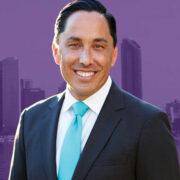
IN additional to the top of the ticket presidential race and local offices, California voters cast their votes for a dozen propositions during the 2020 election. Here’s how the 12 measures faired on Election Day, November 3.
Prop 14 — Stem Cell Research Institute Bond Initiative (YES)
This ballot measure would send $5.5 billion in general obligation bonds for the state’s stem cell research institute, the California Institute for Regenerative Medicine (CIRM).
The increased funds to the CIRM — which would come from investors who would be reimbursed over the next 30 years through taxpayers — would expand research capacity and allocate $1.5 billion for Alzheimer’s, Parkinson’s, stroke, epilepsy and other neurological and nervous system illnesses.
The CIRM was established in 2004 as the first-of-its-kind state-sanctioned stem cell agency and was issued $3 billion in bonds. By October 2019, the CIRM had $132 million remaining and earlier in July 2019, the CIRM had seized applications for new projects because funds were drying up.
Supporters — including the CIRM, Gov. Gavin Newsom and the University of California Board of Regents (UC labs and hospitals are a primary beneficiary of the CIRM) — maintain that stem cell research has led to increased understanding of diseases that affect millions of families, biotech jobs and careers and clinical trials over the last 16 years.
Prop 15 — Property Tax to Fund Schools, Government Services (NO)
Voters rejected this measure to require commercial and industrial properties worth more than $3 million, except those zoned as commercial agriculture, to be taxed based on their market value. The state fiscal analyst estimated that, upon full implementation, the ballot initiative would have generated between $8 billion and $12.5 billion in revenue per year.
A “no” vote means commercial properties would continue to be taxed based on their purchased price, with yearly increases for inflation or 2%, whichever is lower, as they have been since the 1970s.
Prop 16 — Affirmative Action in Government Decisions (NO)
The majority of California voters voted “no” on Prop 16, which would have allowed universities, government offices and other public sectors to factor in a prospect’s race, ethnicity or gender in admissions, spending and hiring. This proposition sought to overturn Prop 209, which was approved in 1996 to prohibit affirmative action and put in place “race-neutral” policies.
Prop 17 — Restores Right to Vote After Prison Term (YES)
A “yes” vote to the proposition supports the constitutional amendment to allow people on parole for felony convictions to vote. The fiscal impact of Prop 17 would be an increase in county costs — estimated in the hundreds of thousands of dollars across California — for voter registration and ballot materials. There would also likely be a one-time cost (similarly in the hundreds of thousands) to update voter registration cards and the electoral system.
Prop 18 — 17-year-old Primary Voting Rights (NO)
17-year-olds, who will be 18 at the time of the next general election, will continue to be unable to vote in primaries and special elections. It would also allow 17-year-olds who are eligible to vote to seek office as current law states that only registered voters are allowed to run for elected office.
Opponents like the Election Integrity Project California, an academic non-profit group dedicated to “electoral integrity,” argued that 17-year-olds are still minors and are biologically not fully developed. They argue that 17-year-olds still need guardian approval for other legal contracts and certain activities and voting should be no different.
Prop 19 — Changes certain property tax rules (YES)
Under Prop 19, Californians aged 55 or older would be granted a property tax break when purchasing a new home. In California, the cost of living is astronomical for new homeowners because property taxes are calculated based on the value of the home when it was bought, not on its current market value. So when Californians buy a new home, their property taxes skyrocket.
Prop 19 would also do away with the inheritance tax break to allocate more funds to local and state fire departments and schools, the initiative says. According to the measure’s fiscal impact statement, local governments, schools and fire protection agencies could each gain tens of millions of dollars of property tax revenue each year.
Prop 19 would allow the older homeowners to buy a new house and still pay relatively low property taxes. In addition to benefiting older homeowners, supporters say this actually benefits new homeowners because it provides an incentive for seniors to downsize, vacating an older home to younger owners.
Prop 20 — Parole Restrictions for Certain Offenses (NO)
For those who have committed certain property crimes and repeatedly violated parole, Prop 20 would have tightened the eligibility criteria for early parole and release from prison. Specifically, prosecutors would have been allowed to categorize property crimes of more than $250, crimes that would include “serial shoplifting” and car theft, as felonies rather than misdemeanors. It would have imposed increased penalties to former convicts who violate their terms of release three times, increasing the frequency of recidivism.
Prop 21 — Expands Governments’ Authority to Rent Control (NO)
Voters overwhelmingly rejected this measure that sought to address some renters’ woes in the Gold State. It would have allowed cities to pass rent control measures on nearly all rental units as long as the properties are more than 15 years old.
Supporters of this measure included the California Democratic Party and U.S. Sen. Bernie Sanders (who supports strict rent control laws) who say that cities should be able to enact their own limits to rent increases as a way to reduce homelessness and gentrification, particularly in California’s metro areas. But the opposition — including Gov. Gavin Newsom and California Apartment Association — argued that Prop 21 takes away an incentive for builders to construct more housing at a time when more housing is needed.
Prop 22 — App-Based Drivers and Employee Benefits (YES)
One of the most advertised and expensive propositions to appear on this year’s ballot, Prop 22 passed, which would exclude gig companies — particularly ride-share and delivery companies like Uber, Lyft, DoorDash and Instacart — from a new state law that requires these companies to treat their workers as employees.
The massive advertising comes from the combined $185 million spent by these companies to support Prop 22. These San Francisco-based companies have been fighting to keep their drivers and couriers as independent contractors, arguing it provides workers with flexible schedules and customers rides at low prices. The fiscal impact of Prop 22 would be “minor increases in state income taxes paid by rideshare and delivery company drivers and investors.”
Prop 23 — State Requirements for Kidney Dialysis Clinics (NO)
Voters largely voted “no” on Prop 23, which would have required dialysis clinics to have “an on-site physician while patients are being treated; report data on dialysis-related infections; obtain consent from the state health department before closing a clinic and not discriminate against patients based on the source of payment.” Opposers of Prop 23 — which includes the California Medical Association, California Hospital Association and the Renal Physicians Association — argue that the ballot measure is a special interest plan that does not require the on-site physician administrator “to have specialty training in kidney care of dialysis,” the No on Prop 23 campaign said.
Prop 24 — Amends Consumer Privacy Laws (YES)
Prop 24 has passed, tightening privacy law in California. Specifically, the bill would create a new state agency that enforces privacy law, conducts investigations into potential privacy violators and oversees penalties to violators.
This bill would also give consumers the right to tell businesses to limit their use of sensitive data in their systems (like geographic location, demographic identifiers, health, etc) and prohibit businesses from storing this data for long periods of time.
Prop 25 — Eliminates Money Bail System (NO)
Among the most talked-about issues during the primary election season, the cash bail system has been criticized for favoring criminal suspects who can afford to make bail and punishing those who cannot. Prop 25 would have upheld a 2018 law signed by then-Gov. Jerry Brown that would have replaced cash bail with a “risk-based algorithm” — or, a method to gauge a person’s risk for not appearing at trial.
The opposition argued that the proposed alternative to cash bail is more costly and no better than the current system, while civil rights organizations like the California State Conference of the NAACP and Human Rights Watch said that the risk-based algorithm is flawed and the factors associated with this method could still put people of color at a disadvantage. (AJPress)







